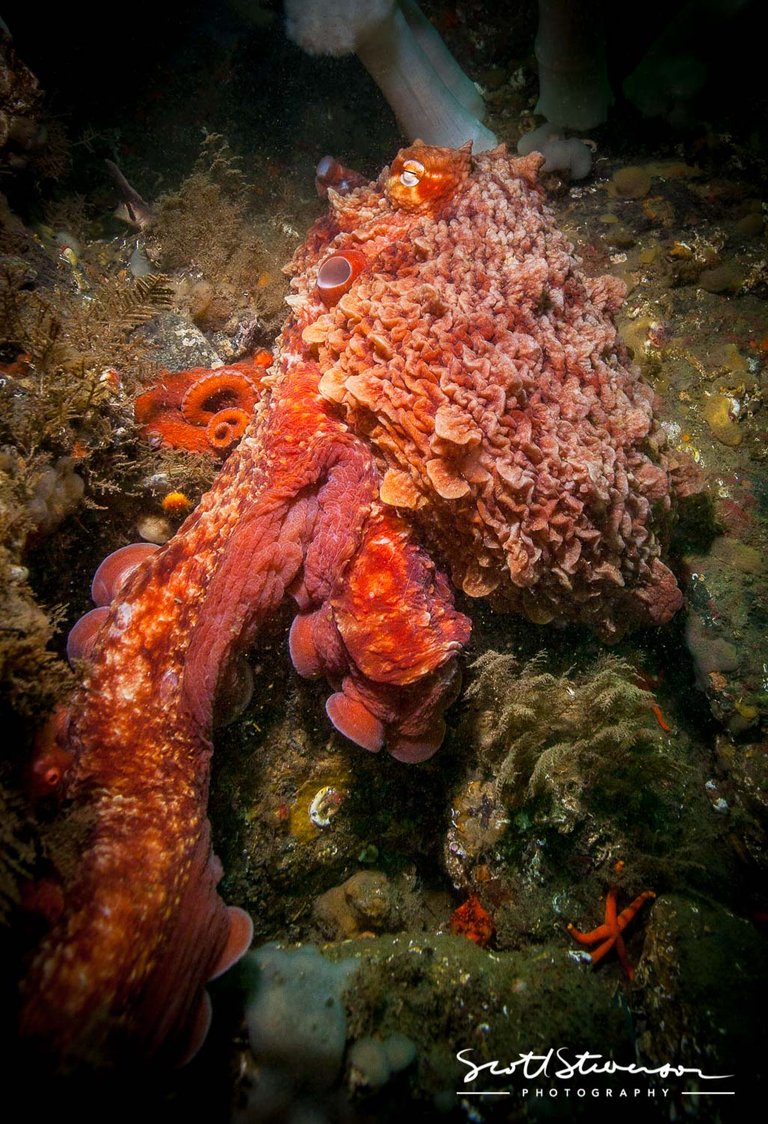
Got a case of the Blues or Greens?
Let's talk about some basic principles of light underwater and how to put a little light on the subject. Are your images a little blue or in my case a little green? Depending on where your living or creating images you may have run into this problem.
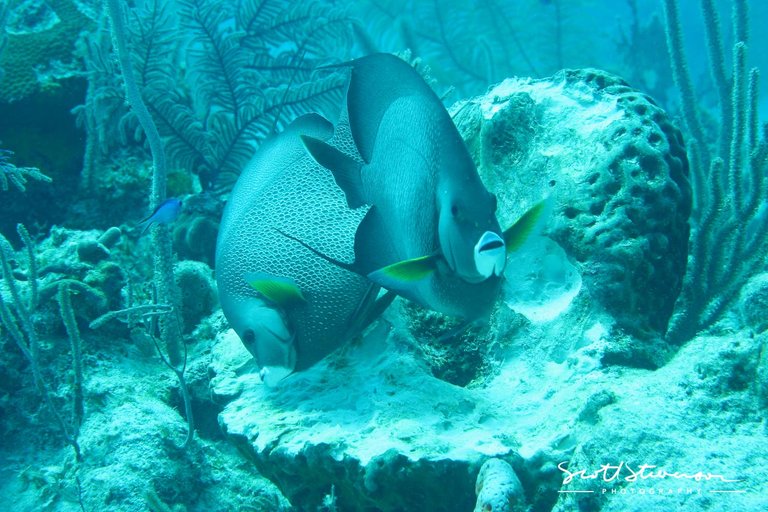 No strobe, in tropical water.
No strobe, in tropical water.
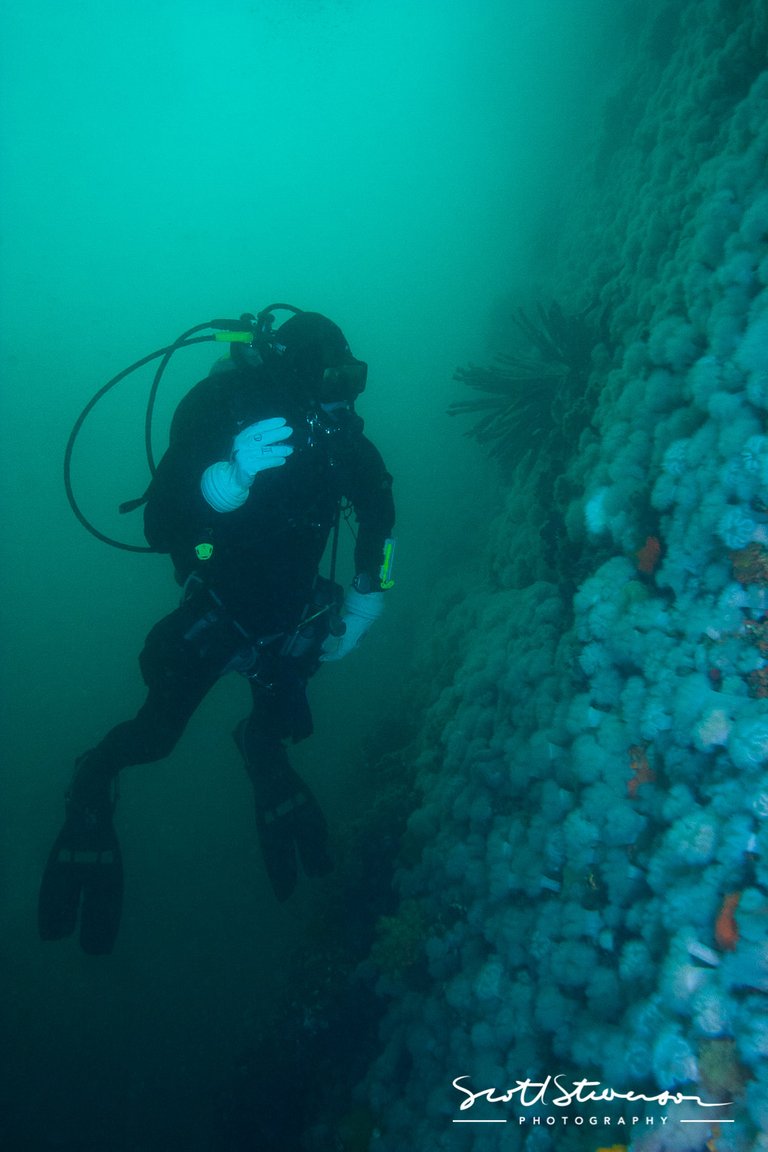 No strobe in temperate water.
No strobe in temperate water.
Have you been wondering why the amazing colours from your dive never made it into your images? If you’re not using the appropriate strobes, or not using your strobes properly to light your subjects, your images will quite literally take on a bluish or greenish hue.
It's all good, this is a common problem that is easily fixed.
Sorry a little learning section - Water absorbs light very quickly due to the fact that water is exponentially denser than air – approximately 800 times denser to be fairly precise. Not only does this result in dull, monotone colors, but it also decreases contrast and image sharpness.
Specific frequencies of ambient light get absorbed at different depths, from the longest wavelength to shortest (basically the colors of the rainbow, remember ROYGBIV?). Red nearly disappears at around 5 meters, followed by orange at 10 meters, yellow at 20 meters, green at 30 meters and eventually even blue at 60 meters.
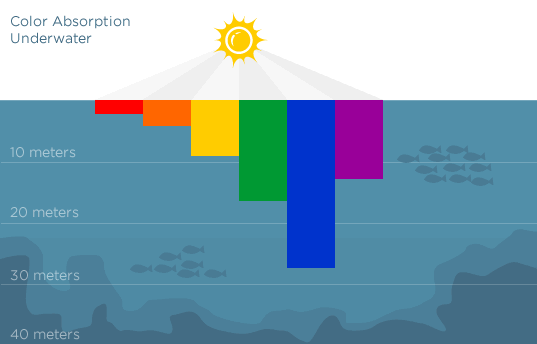
credit: http://www.lymanlures.com/pyramid-lake-report-april-24/ - I have no affiliation with this site but I really liked their design of this visual aid.
Ok, back to the fun stuff.
New and less experienced underwater photographers often get frustrated from the blue / gray hue of their images - a direct result of the properties of water and the effect of light absorption.
Right, so how do I fix this?
Due to this colour loss underwater, you must compensate in some way. This is accomplished by using artificial light in the form of strobes (flashes for you land people out there), and in some scenarios can be accomplished with the addition of filters attached to your lens.
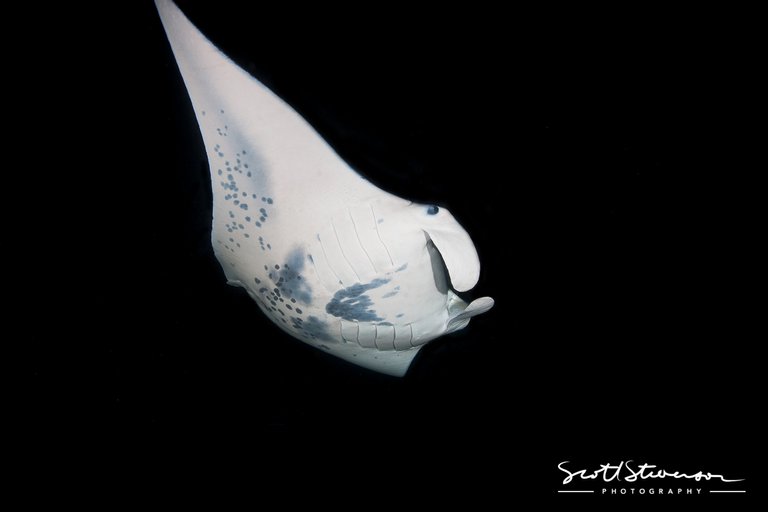 This images can not be created with the use of strobes. Giant Manta feeding at night, Kona Hawaii.
This images can not be created with the use of strobes. Giant Manta feeding at night, Kona Hawaii.
Strobes emit daylight-balanced light that help to paint the color back into your images, create contrast, accentuate textures and retain details. Sometimes strobes are used to fill in light where shadows dominate, while in other instances strobes provide the key lighting for your image.
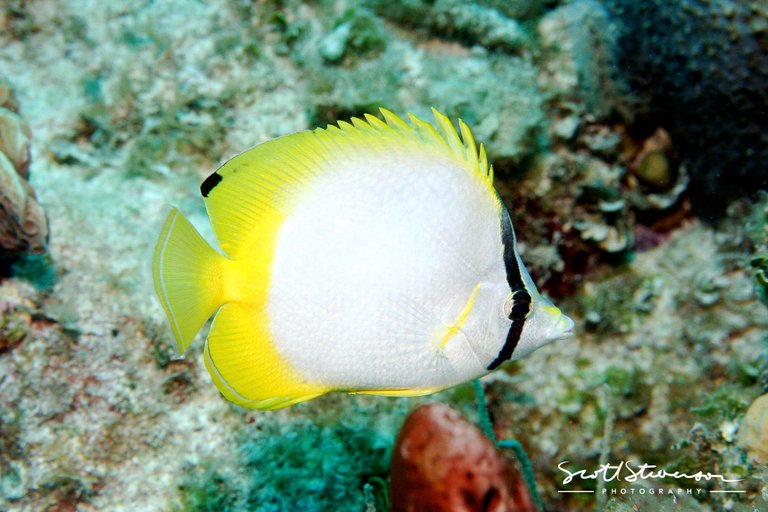 With the use of a strobe in tropical waters.
With the use of a strobe in tropical waters.
Light is the most important aspect of an image and adding light helps create a feel or a desired effect with an image. Strobes are that tool of underwater and arguably the best investment you can make to improve your underwater photography.
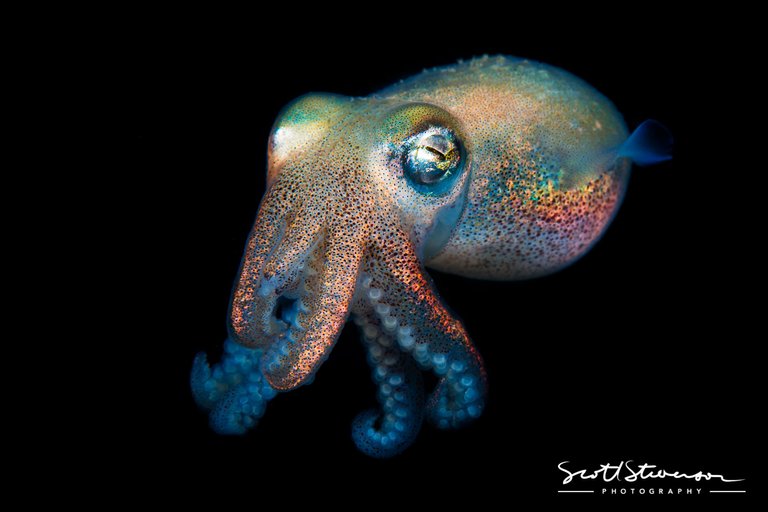
Thanks for reading. If you have any question please let me know. Let the light shine down, and up and all around.
Scott
For more stories and images - http://www.scottstevensonphotography.ca/
So helpful! Thanks.. When do we use color filters underwater?
In general if you are using strobe lights and are close enough to the subject you will not need filters. If you do not have an artificial light source then you can use filters that will help correct the color. An example of this is just using a gopro without lights you will need darker filters the deeper you go but if you are in shallow water less then 15' going without a filter is usually fine.
found this with a quick search for more details:
http://www.divephotoguide.com/underwater-photography-techniques/article/using-filters-underwater-photography/
Awesome photos! All these sea creatures are beautiful specially that colorful octopus or squid you have
Wow I learned so much... How fun , I just love all your posts
Right?! So good and educational.
Thanks for the educating post! My husband and I are working on getting our scuba certifications and your posts have been really inspirational so far!
Marvelous world under the sea.
A very bright light underwater to take pictures
indeed the beauty of underwater it is very nice and attract many people I also love
Great information and photos!. But i wonder, when you're using artifical light, don't you scare them off? Aren't they sensitive about that?
Good post, i like it
I wish you success
@scottdphoto
Now I am ashamed i have never learned how to swim, love water only scared .
great work sir :)
Really interesting info with gorgeous photos @scottdphoto 👍🏼
Wao awesome it gives too much knowledge
Many thanks for great info
natural beauty that is in the water or on land all in the light, without the light of beauty does not mean, this image is very good, I really love you @scottdphoto
Keep sharing more tips and ideas. Steem on. resteemedWow. @Scottdphoto Best explained. Ive never thought about under water photography through this anlge. No wonder water shines because of absorbing light factor.
Awesome post, that last shot is crazy, that octopus looks insane! You know I'd never really thought about lighting for underwater shots like yours but it's fascinating to learn more about for someone like me. I'm not sure if it's something I'll ever try but the more you understand light the better! Thanks for sharing dude!
I read your post it and getting good information from there nice explanation as well as work . The best part of this post is statics of colors I must it nice
Your work is beautiful. Do you by chance sell your prints? I've been following you and I am in love with your work.
I am wondering.. do you use special lenses for your underwater shots?? I am pretty curious if there are special lenses made for underwater photography or do you just shoot with water sealed dslrs????.. awesome work sir.. you inspire me. Cheers!!!
the beauty of God creation 😁
Most people dont share their knowledge so easily. I appreciate your post for that reason. Great information. Thank you
Nice,thank you
Interesting topic, I liked the technical explanations as well.
wall you are photography master
Amazing photo!!!
so great! I love to photograph nature so much but I am always above the water so for me it is great to read and see your photographs. It has to be amazing to explore these underwater worlds! And I also loved the learning part :-) I wish I could vote you with more power but I've just started :-) Thanks!
so thoughtful
I see my upvote mean nothing on the amount you are getting but still i have to give it to you!
Nice seeing that you're underwater photographer!
I did all my diving courses until divemaster in taganga colombia with a really good photographer called Santiago Estrada, you should check his photos!!!
We also did a few dives with kisang lee another amazing underwater photographer from korea...
cheers!
The cephalopod picture is amazing!
my dad used to have a light rip for photographing fish. What do you think of a tripod and long exposure...light painting underwater? Check out my light painting articles.
Now I appreciate light and it’s importence even more. It’s something I take for granted most of the time! Let there be light, indeed!
Thanks for the information, very educational.
Great post, a lot of good informations. I will have to try underwater photography some day as I am a big fan of underwater fauna and flora, for now I am just diving with basic gear, but this is subject for develop for sure. I have seen many great works on Your site. I am going to follow Your future work. I am still new here but there are some posts which You can see on my site, some of them very close connected with water :D. Have a good day!
Love your posts. Super insightful for my photography. Have you ever tried doing more elaborate strobe work underwater? Do you know if it's possible to do off camera strobes somehow to light the background of a cave?